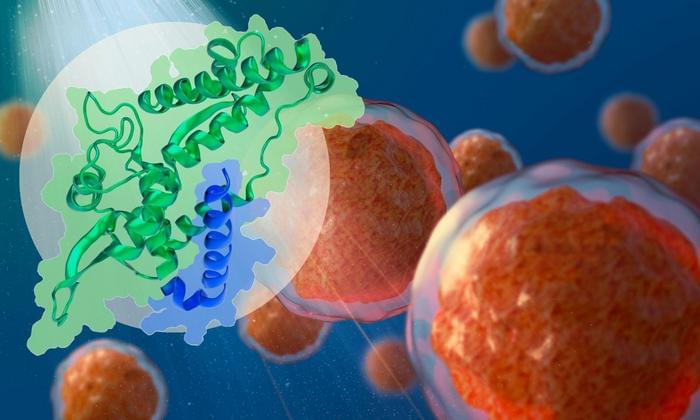The Melanoma Antigen Gene (MAGE) family consists of more than 40 proteins in humans, most of which are only present in the testes under healthy conditions. However, in many cancers, these proteins are found in high levels in tissues where they are not usually expressed and are believed to play a role in promoting cancer progression. Researchers from the Bhogaraju group at the European Molecular Biology Laboratory (EMBL) Grenoble have gained new insights into how these proteins bind their targets. The findings could potentially aid in the development of drugs against chemotherapy-or radiotherapy-resistant cancers.
The findings are published in The EMBO Journal, in an article titled, “Structural basis for RAD18 regulation by MAGEA4 and its implications for RING ubiquitin ligase binding by MAGE family proteins.”
“MAGEA4 is a cancer-testis antigen primarily expressed in the testes but aberrantly overexpressed in several cancers,” the researchers wrote. “MAGEA4 interacts with the RING ubiquitin ligase RAD18 and activates translesion DNA synthesis (TLS), potentially favoring tumor evolution. Here, we employed NMR and AlphaFold2 (AF) to elucidate the interaction mode between RAD18 and MAGEA4, and reveal that the RAD6-binding domain (R6BD) of RAD18 occupies a groove in the C-terminal winged-helix subdomain of MAGEA4.”
